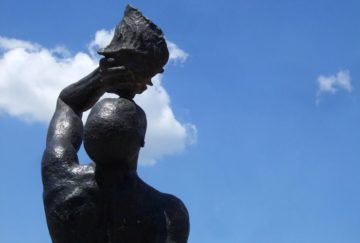 Steve Hahn in Boston Review:
Steve Hahn in Boston Review:
The Age of Revolution (1770–1850), bookended by the American and French Revolutions on the one side and the Revolutions of 1848 on the other, is widely viewed as the progenitor of the modern Euro-Atlantic world. Its intellectual energy fused the liberal and republican ideas of John Locke with the ideals of the eighteenth-century Enlightenment; its political energy fed off the struggles between the bourgeois and their aristocratic enemies. Although visionary hopes could meet crushing defeats—as they did during the popular risings of 1848—by the end, there were new parliamentary regimes, emerging nation-states, declarations of rights, and the eruption of an industrial age.
And yet, this classic narrative leaves out the most radical of the revolutions that exploded neither in continental Europe nor in North or South America, but in the Caribbean, on the island the French called Saint-Domingue and the victorious rebels would call Haiti (Ayiti), after its indigenous name.
Until recently, the Haitian Revolution and other Caribbean slave rebellions have been treated as sidebars to the Age of Revolution. In part this is because of a Eurocentrism that has long diminished the role of Black people in shaping history. But equally important, enslaved people didn’t fit an accepted image of political actors, and thus it was difficult for historians to see them standing alongside the signers of the Declaration of Independence in America, the Jacobins in France, the Bolivareans in Gran Colombia, the Mazzinians in Italy, or the Chartists in England: envisioning, allying, struggling, surmounting.
More here.
